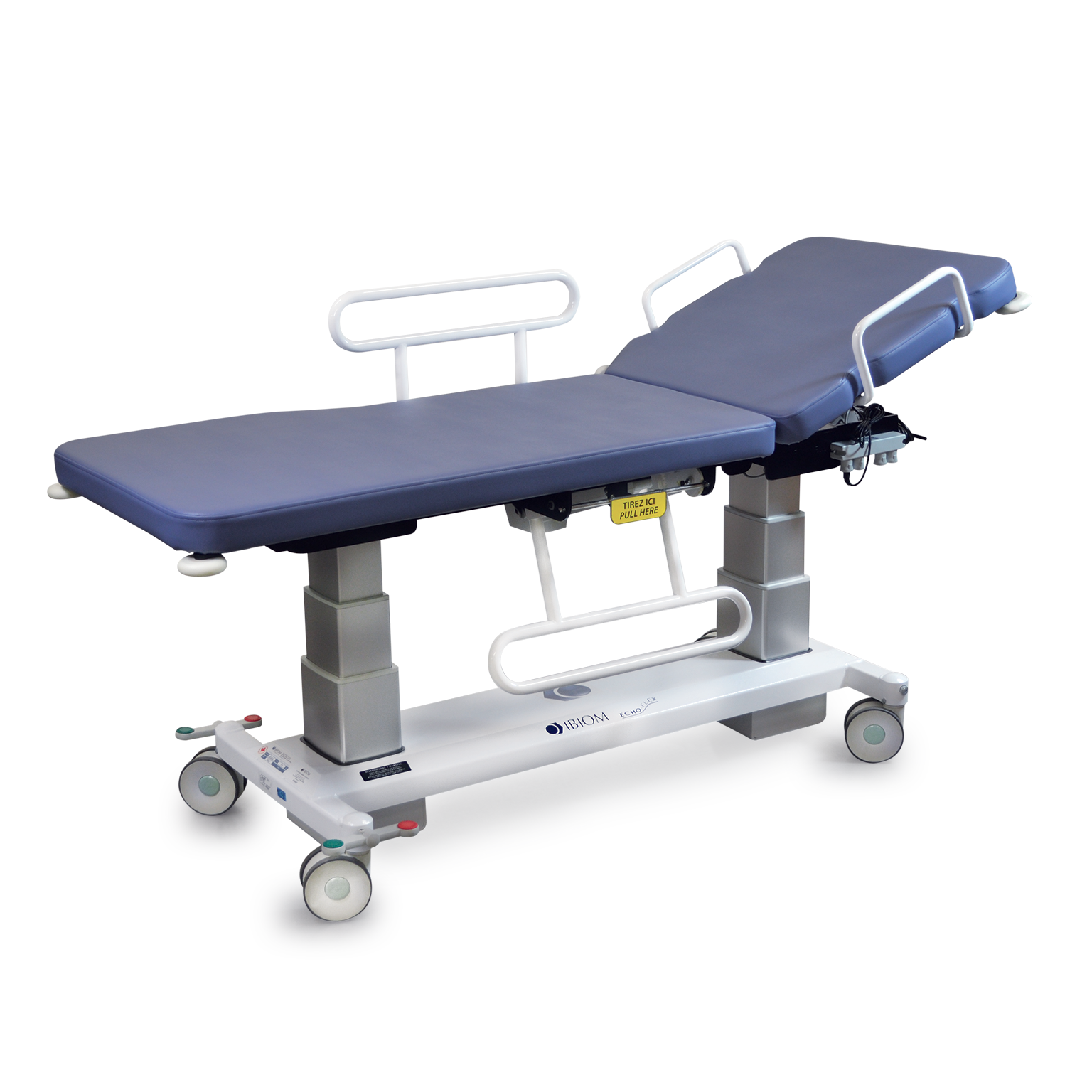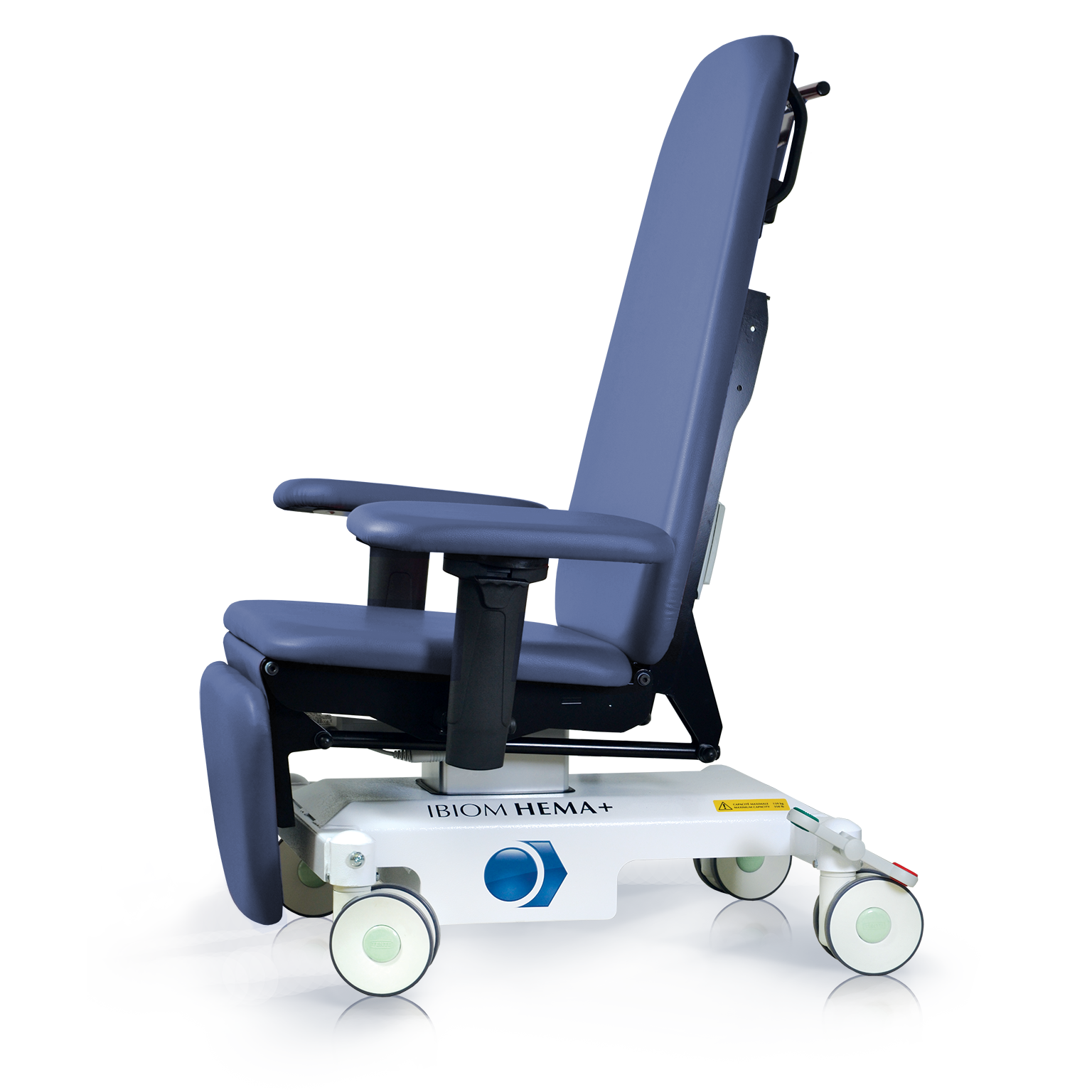Medical equipment for intensive care
Intensive care
Intensive care is provided in intensive care units of hospitals and nursing homes. Critically ill or injured patients are cared for in these units to ensure that their life functions are maintained. For example, intensive care units accommodate patients with respiratory distress, in comas, suffering severe trauma, or major surgery. Some ICUs are specialized, providing care related to cardiology, nephrology, neonatology, pulmonology, etc.
The operation of the intensive care unit relies on the collaboration of various medical personnel, forming a multidisciplinary care team: intensive care physicians (called “intensivists”), nurses, respiratory therapists, pharmacists, nutritionists, physiotherapists, social workers, patient care workers, etc.
It is essential to provide these healthcare professionals with ergonomic medical equipment to prevent work stoppages due to occupational injuries.

Are you looking for a brand of medical equipment?
IBIOM distributes equipment from several brands recognized for their quality and ergonomics, including ergoCentric and Allseating.
Why use ergonomic medical equipment in intensive care units?
In intensive care units, healthcare professionals are called upon to perform tasks that pose significant occupational injury risks. Musculoskeletal disorders are very common among healthcare professionals who perform physical acts with patients. Using ergonomic medical equipment for critical care can reduce the risk of injury. For example, treatment tables and patient chairs with power adjustments reduce the need for medical staff to exert undue physical effort when positioning or moving the patient.
In addition, since these medical devices are easily adjustable, they encourage the adoption of an ergonomic and non-restrictive posture by healthcare professionals depending on the task. Knowing that work stoppages related to occupational injuries result in high expenses, both for the treatment of the injury and for planning the return to work, opting for ergonomic medical equipment for critical care is a wise long-term investment.
Do you have specific needs?
Our team of professionals at Ibiom is there to advise you and guide you towards the range of products best suited to your needs.
Do you have specific needs?
Our team of professionals at Ibiom is there to advise you and guide you towards the range of products best suited to your needs.
Other critical care medical equipment
Other treatment chair models suitable for intensive care units include the INO. This versatile chair is easy to use and maintain. It is lightweight and stable, yet it provides excellent maneuverability. It is often used for home care or in retirement homes. However, since it can be combined with many accessories, it can easily be transformed into a complete care chair. This chair offers great configurations flexibility (up to eight armrest choices, five-wheel choices, four-seat heights, etc.). Another chair recommended for intensive care is the HEMA+.
An anti-fatigue mat can benefit healthcare professionals who use a height-adjustable workstation that allows them to work in a standing position. This mat helps reduce pressure on the feet, knees, and back. To ensure the safety of medical personnel and to avoid any risk of falling, the anti-fatigue mat is made of a non-slip coating and is designed not to allow any curling of the edges.
In addition, it is puncture and tear-resistant and guaranteed not to crack. The anti-fatigue mat is recommended for all healthcare professionals working in a standing position for long periods. Thus, it is also commonly used in operating rooms, pharmacies, and laboratories.
Want to know more about the features of our medical equipment?
Check out our blog to learn more!


